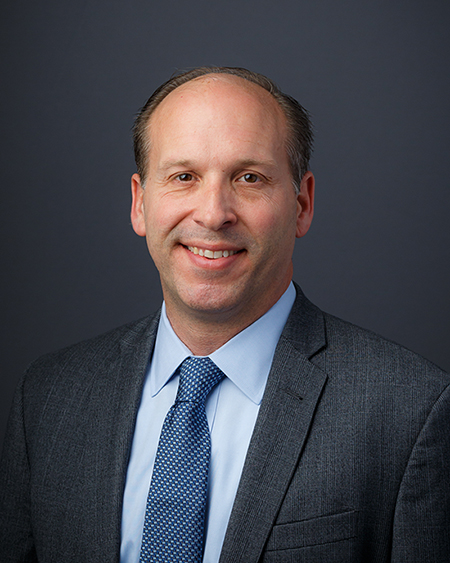By Steve Mason, Chief Executive Officer, Medical Segment

Over the last nearly two years, the COVID-19 pandemic has created historic challenges for healthcare providers and patients. The entire healthcare system has faced unprecedented stress as providers work tirelessly to care for their patients, improve access to care, increase equitable outcomes, and seek new administrative efficiencies.
In my role as CEO of the Medical Segment, I have witnessed how dramatic increases in hospitalizations, disruptions to the supply chain and workforce challenges have impacted our nation’s hospitals. From the beginning of the pandemic, our team at Cardinal Health has had a single focus: helping to solve these challenges so that providers can continue to take care of the patients who need them.
We also continually advocate for healthcare providers, who we know will continue to experience pandemic-related challenges for the foreseeable future.
Recently, I’ve written to the Secretary of the Department of Health and Human Services (HHS), Xavier Becerra, asking for his support in working with Congress on several policy recommendations that will support healthcare providers and ensure resiliency in the U.S. healthcare system:
- Quickly distribute the recently announced $25.5 billion in Provider Relief Funds (PRF) and American Rescue Plan Act (ARPA) funds, as well as the rest of the PRF funds to providers, to target the spring, summer and later surges of COVID-19 cases. Release of these additional funds is particularly urgent, as there have not been any distributions made that were designed to target expenses and lost revenues after June 30, 2020.
- Encourage Congress to prevent reductions in Medicare reimbursements, particularly to extend the current reprieve from the 2% Medicare sequester stemming from the Budget Control Act of 2011 and to prevent a 4% Statutory PAYGO (pay as you go) sequester resulting from the American Rescue Plan Act passed in March 2021. (Without congressional action, Medicare providers face a nearly 10% cut to reimbursements on January 1, 2022.)
- Maintain the 3.75% temporary increase in the Medicare physician fee schedule conversion factor (CF), at least for 2022, which was enacted by Congress to avoid payment cuts associated with budget neutrality adjustments tied to Medicare Physician Fee Schedule (PFS) policy changes.
- Lift the statutory freeze in annual PFS updates under the Medicare Access and CHIP Reauthorization Act (MACRA), which is scheduled to last until 2026, and increase the 0.25% inflation update to better align with medical and consumer inflation price indices.
- Fund policies to expand and retain the U.S. healthcare workforce:
- Lift the cap on Medicare-funded residency positions (the Resident Physician Shortage Reduction Act of 2021);
- Expand nursing schools and training programs (the Future Advancement of Academic Nursing Act);
- Expedite the visa authorization process for qualified international nurses to support hospitals that are facing staffing shortages (the Healthcare Workforce Resilience Act); and
- Address suicide, burnout and behavioral health disorders among healthcare professionals (the Dr. Lorna Breen Health Care Provider Protection Act).
- Adopt measures to align ports, rail and trucking to ensure supply chain resiliency. In May this year, imports of containerized freight from Asia to the U.S. were 30% higher than in May 2020. The increased volume of goods continues to create strains on shipping capacity by sea, air and land. Medical products need an expedited process across our multi-modal transportation system. Specifically, I asked for Secretary Becerra’s support in:
- Building on the important work that President Biden recently announced by aligning the entire transportation system (port, rail, truck) around 24/7 operations during a pandemic, which will help expedite access to products for healthcare workers;
- Creating a process to expedite critical products and align ports, rail, trucking and distribution centers; and
- Eliminating bottlenecks created by restrictive empty container return rules. These restrictions significantly constrain the efficient use of trucking power and chassis and are a major contributor to both gridlock and reduced trucker capacity.
Every day, I’m grateful for the dedication and remarkable service that those in our health systems deliver to their patients. And every day, I am proud to support their work.
Steve Mason is the chief executive officer of the Medical Segment at Cardinal Health – a global provider of medical products and supply chain services across the healthcare continuum from hospitals to laboratories, physician offices, surgery centers and patients in the home. Mason has more than 20 years of experience in leadership roles across Cardinal Health’s Medical and Pharmaceutical Segments. He is an executive sponsor for the company’s Diversity, Equity & Inclusion Steering Council as well as the PROUD Network, an employee resource group supporting LGBTQ+ and Ally employees. He also serves on the board of the United Way of Central.
